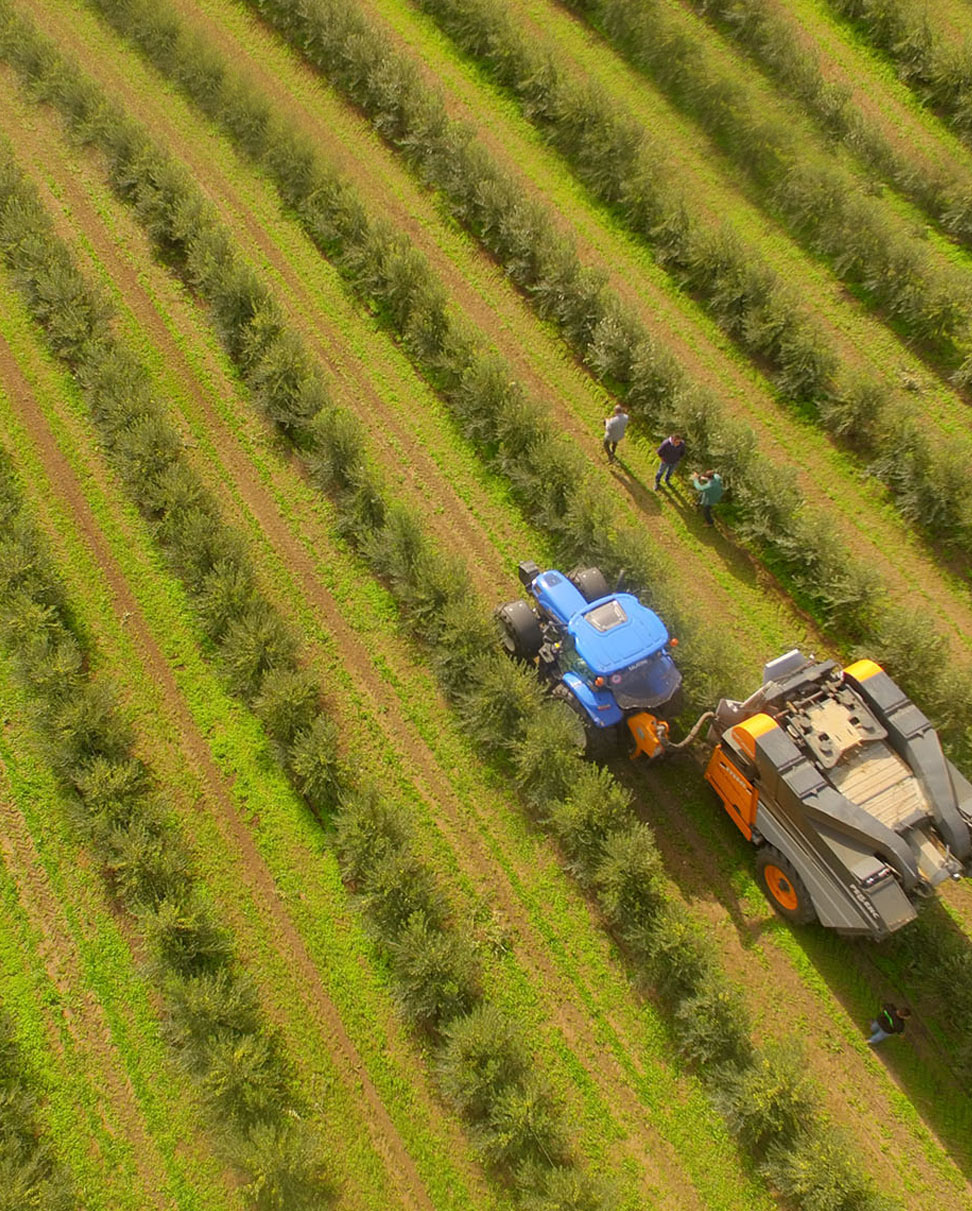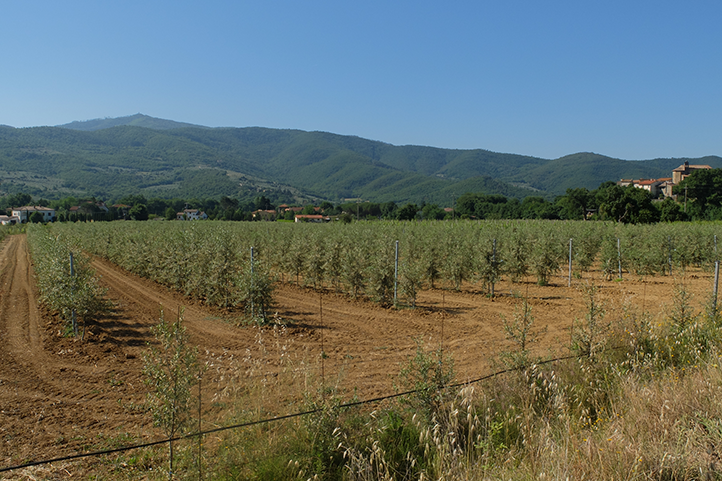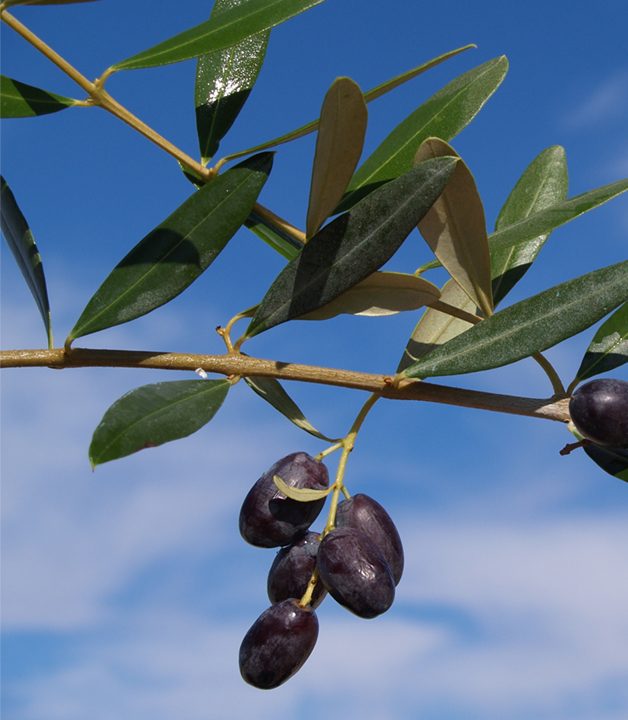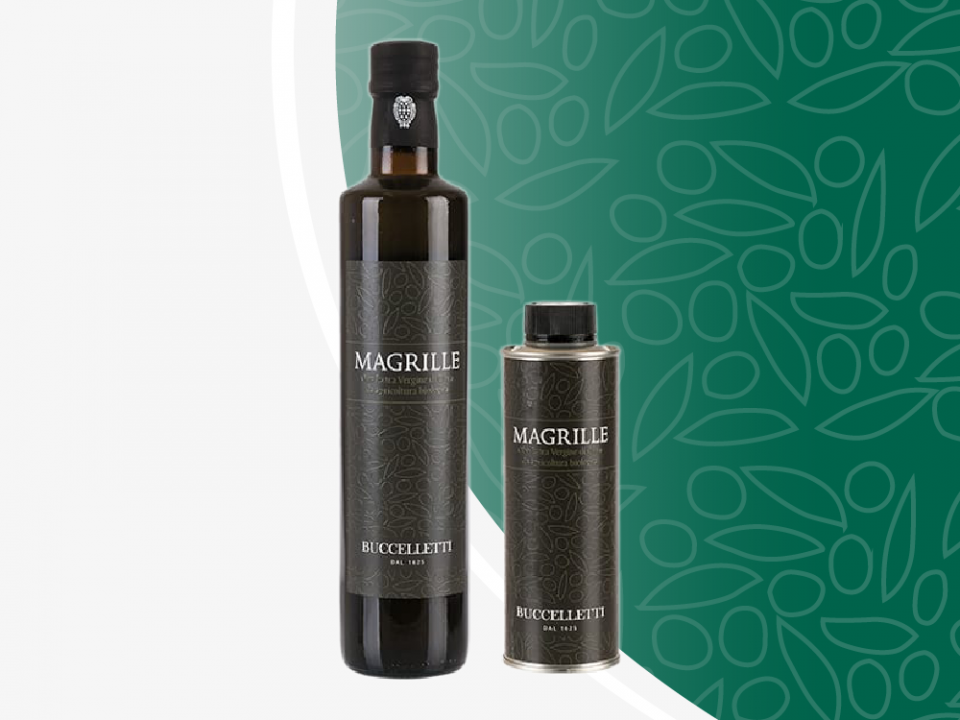Super high-density olive orchards: long duration and high productivity

Livita Plus: the testimony of Fratelli Fratta, among the first companies to trust us
08/08/2019One of the most common criticisms of super high-density olive orchards is their duration: in fact, many believe that this type of olive growing cannot develop in the long term and that, over about ten years, it will be completely exhausted, unlike traditional olive orchards that last much longer. Instead, a recent research has shown that super high-density olive orchards can have a duration longer than 14 years without reducing production or worsening performance.

Super high density long-lasting olive growing: what does the research say?
Super high density olive growing was born in Spain in the 1990s and provides for an average of 1500-2000 olive trees per hectare; before then, traditional olive-growing provided for a density of about 70-80 trees per hectare. This type of plantation has many advantages, including higher productivity, always high yields, rapid mechanised harvesting, but with a short duration of the olive grove, that would become extinct after a few years.
This conviction has spread on the basis of some experiences that showed a reduction of the yield after 7-8 years and also because there are no long-term studies that characterize this system since it began to spread only a few years ago. It was therefore not possible to determine whether, above a certain threshold, a high density could trigger competition between olive trees and compromise their development.
A recent research conducted by a team of researchers from the University of Cordoba and the University of California has finally clarified this issue as well. In 14 years, the performance of the main cultivars currently used in super high density olive orchard, including Arbequina, Arbosana and Koroneiki, has been evaluated: the production of olives and oil has increased linearly over the years and depending on the density of the trees, and long-term performance has been favourable.
Controlled olive trees are still fully productive after 14 years of planting and this result contradicts previous experiences which showed a decrease in production after 7-8 years due to high vigour, shading and limited ventilation.

Olive growing in Italy: the Livita Plus method
For those working in the olive sector, therefore, good news. Super high density olive growing represent a highly productive and profitable choice, even if they require a high initial investment and this has discouraged many farmers and entrepreneurs.
From these premises, Buccelletti has developed a high profitability method, with an excellent cost-benefit ratio, a winning economic model that leads to the production of a high quality olive oil.
Livita Plus is a high-density olive trees growing system based on precision agriculture and the planting of a large number of olive trees, between 600 and 1600 depending on the variety. The entry into production is early, agricultural interventions and maintenance are reduced to a minimum, the processes are mechanized and from the third year you will have a continuous production without periods of unproductivity. All this takes place in full respect of the environment, soil and plants, with the aim of producing an excellent extra virgin olive oil, as in the best tradition of Italian olive growing.
To meet the needs of growers, we offer not only a high-density turnkey olive growing but also in-depth financial advice that allows you to recoup your initial investment in five years.
Thanks to its characteristics of sustainability and innovation, Livita Plus presents itself today as the olive growing system of the future!

Do you want to know more about the Livita Plus system?




